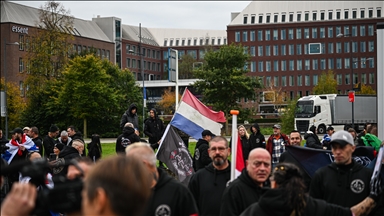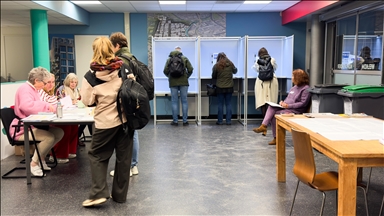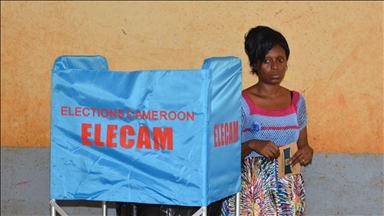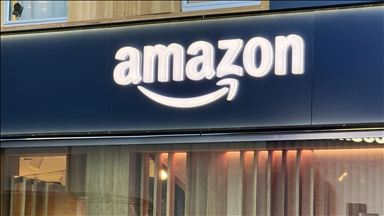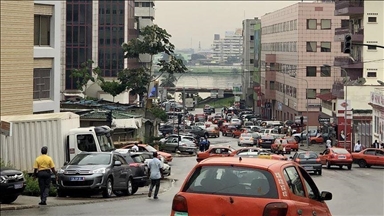Dutch election outcome hard to predict, inevitable coalition talks ahead: Expert
'Finishing first in Netherlands is basically meaningless thing, or at least it doesn't have that much meaning ... You always need coalition,' Dr. Kristof Jacobs tells Anadolu
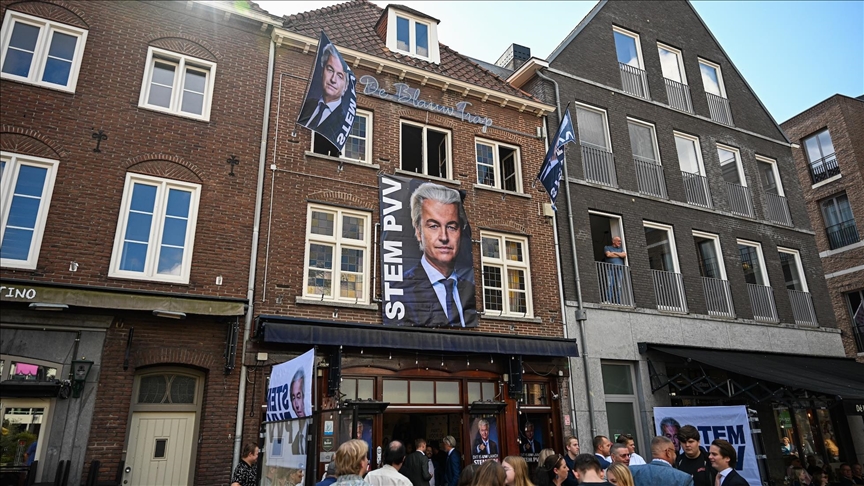 Geert Wilders officially launches the PVV’s campaign for the upcoming Dutch parliamentary elections at a local venue, Cafe De Blauwe Trap in Venlo, Netherlands on September 05, 2025.
Geert Wilders officially launches the PVV’s campaign for the upcoming Dutch parliamentary elections at a local venue, Cafe De Blauwe Trap in Venlo, Netherlands on September 05, 2025.
- He expects lengthy coalition talks after election, noting new government will face challenging conditions marked by housing, healthcare crises
BRUSSELS
As the Netherlands will head to its snap general elections on Wednesday, an expert says the outcome remains highly unpredictable due to a volatile electorate and a fragmented political landscape, warning that lengthy coalition talks are almost certain to follow.
"Anything is still up for grabs," Dr. Kristof Jacobs, associate professor at Radboud University in Nijmegen, told Anadolu.
"In 2023, the previous election, 40% of the voters made their decision who to vote for only in the last week before the election day. That is very common in the Netherlands."
The upcoming vote was triggered by the collapse of Prime Minister Dick Schoof’s coalition in June 2025, after Geert Wilders’ far-right Party for Freedom (PVV) withdrew over its partners' refusal to adopt stricter immigration and asylum policies.
According to Jacobs, two main factors influence voter behavior in the final days of campaigning: opinion polls and televised debates.
"Voters in the Netherlands tend to take notice of who is the biggest in the polls. If they are more right-wing voters, they tend to look at who is the biggest right-wing party. If they are more left-wing voters, they tend to look at who is the biggest left-wing," he explained.
‘You always need a coalition’
Opinion surveys suggest that PVV could finish first. However, Jacobs cautioned that such a result would not necessarily translate into governing power.
In the Netherlands, a party needs 76 seats to form a majority government — a feat that, as Jacobs noted, "hasn't happened in the Netherlands for a very long time."
The country’s highly fragmented political system makes coalition-building unavoidable. "Finishing first in the Netherlands is basically a meaningless thing, or at least it doesn't have that much meaning ... You always need a coalition," he said.
Jacobs added that it remains "very unlikely" PVV will join the next ruling coalition, as several parties — including the conservative-liberal People’s Party for Freedom and Democracy (VVD) — have ruled out cooperation with the far-right.
He sees the most probable outcome as a center-right coalition, depending on the strength of the left-wing bloc led by Frans Timmermans of the GroenLinks–Labour alliance.
- Long coalition talks ahead
Regardless of the outcome, Jacobs expects prolonged coalition negotiations following the Oct. 29 vote.
"We'll probably spend the next few months after the election day watching ministers entering a building and then negotiating in them, nothing happens until I guess perhaps around the summer, they'll have a new government," he said.
Even once formed, the next government will face serious challenges. "The housing crisis is very difficult to tackle and still there. The healthcare crisis is still there. There's low trust in politics, low trust in government. So the new government will enter under difficult circumstances."
"What we've seen in the past few years is that there's never a dull moment in Dutch politics. So, I'm not expecting that to happen, but who knows," Jacobs added.
Immigration, housing, health care dominate campaign
The election campaign has centered on three major voter concerns — immigration, housing, and health care.
"The housing prices in the Netherlands are very high and a lot of people want to have a stable health care system but the health care system is very expensive," Jacobs said.
Voter turnout is expected to remain high, around 80%, consistent with previous elections. However, Jacobs warned that some disillusioned PVV supporters may choose not to vote.
"These voters tend to, rather than vote for another party, stay at home so they don't go to another party. They just don't vote then," he explained.
Foreign policy: ‘Back to normal’ expected
On foreign affairs, Jacobs predicted little change in the Netherlands’ stance on the EU, NATO, or Middle East policy.
"The most likely scenario is back to normal," he said. "The last government was basically relatively passive ... What you can expect with the next government is that at the international level, they'll basically join the other countries."
However, if the left-wing bloc joins the coalition and secures the Foreign Affairs Ministry, Jacobs said the Netherlands could adopt a more proactive approach.
"I would say that basically what you can expect is that the Netherlands will not be the frontrunner, not the one making new demands, but rather trying to make sure that they are aligned with the middle or the other governments in Europe," he added.
Anadolu Agency website contains only a portion of the news stories offered to subscribers in the AA News Broadcasting System (HAS), and in summarized form. Please contact us for subscription options.


